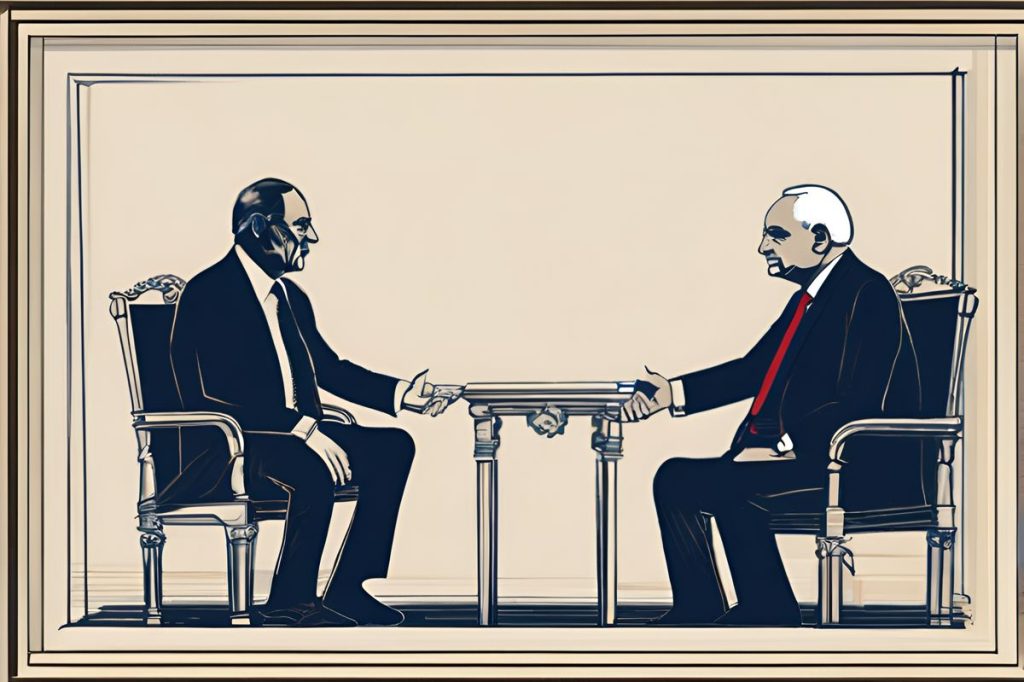The European Union is set to bolster ties with Egypt through a $5-6 billion funding package, focusing on renewable energy, trade, and security sectors. The move aims to address regional stability and migration issues in the region, marking a new chapter of cooperation between the two entities.
What is the EU’s plan for strengthening ties with Egypt?
The European Union plans to strengthen ties with Egypt by providing a funding package of $5-6 billion to support the country’s economy, aiming to advance renewable energy, trade, and security sectors, while addressing regional stability and migration issues.
Strengthening Economic and Political Ties
In a move to deepen ties with Egypt, European leaders are set to unveil a substantial funding package to support the country’s economy and foster stronger relations. President Nikos Christodoulides, among other European dignitaries, will be present in Cairo this coming Sunday to announce this new chapter of cooperation. The multi-faceted agreement is expected to bring about advancements in renewable energy, trade, and security sectors.
Egypt, with its sprawling population that surpasses the 100 million mark, is at a crucial juncture. The nation has been grappling with economic challenges and a pressing need for foreign currency. A considerable number of Egyptians have found themselves compelled to migrate due to the economic strain. Yet recent weeks have seen a glimmer of hope; Egypt secured a significant investment from the United Arab Emirates, reached an expanded agreement with the International Monetary Fund (IMF), and took bold steps by devaluing its currency.
The Migration Dilemma
Europe’s concern over potential instability in Egypt is underscored by the country’s strategic position. The ongoing conflict in neighboring Sudan and the Gaza war, near Egypt’s Sinai Peninsula, have emphasized Egypt’s role as a pivotal player in regional stability. The country has been instrumental in delivering aid to Gaza and, along with other nations, is working towards mediating peace between Israel and Hamas.
The financial support from the European Union aims to bolster Egypt’s faltering economy, with expectations of infusing between $5-6 billion into their markets. This support is seen as a reward for Egypt’s efforts in hosting millions of foreign residents and significantly reducing irregular migration from its shores since 2016. However, the rise in Egyptian migrants attempting to cross into Europe via Libya signals a shift in the migration pattern, one that the EU is keen to address.
Human Rights Concerns Amid Support
While Western nations have focused on strengthening ties with President Abdel Fattah al-Sisi’s administration, human rights organizations have voiced their apprehensions. The crackdown on dissidents, which has led to the arrest of tens of thousands, has attracted widespread criticism. Supporters of President Sisi argue that such measures were vital for Egypt’s stability post the 2011 uprising, which has enabled the country to invest in social infrastructure.
Critiques from groups like Human Rights Watch suggest that the EU’s strategy mirrors the contentious agreements with Tunisia and Mauritania. They claim that these agreements prioritize migration control while turning a blind eye to human rights abuses. The question remains on how the EU will balance its strategic interests with the pressing need for upholding human rights standards.
Economic Reforms and International Aid
The financial landscape in Egypt is poised for change with the promised multilateral support. Alongside the EU’s funding, Egypt’s own government has lined up a total of $20 billion in support after intensifying its economic reform measures with the IMF. These moves are seen as vital steps in stabilizing the Egyptian economy and positioning it for future growth.
Diplomats and economic advisors highlight the importance of such international aid, not only as a lifeline for Egypt’s economy but also as a strategic investment in regional security and prosperity. As European leaders prepare to solidify this partnership, the world watches to see the effects of these investments on the broader geopolitical canvas of the Mediterranean and the Middle East.
What sectors will the EU funding focus on in Egypt?
The EU funding package of $5-6 billion will focus primarily on advancing renewable energy, trade, and security sectors in Egypt. This aims to support the country’s economy and address regional stability and migration issues.
What is the significance of Egypt’s strategic position in the region?
Egypt’s strategic position in the region is crucial, given the ongoing conflicts in neighboring countries like Sudan and the Gaza war near the Sinai Peninsula. The country plays a pivotal role in regional stability, aid distribution, and peace mediation efforts in the Middle East.
How have human rights concerns impacted the EU’s partnership with Egypt?
Human rights organizations have raised concerns about the EU’s strengthening ties with Egypt, particularly regarding the crackdown on dissidents and human rights abuses under President Abdel Fattah al-Sisi’s administration. Balancing strategic interests with human rights standards remains a challenge for the EU in this partnership.
What other international support is Egypt receiving to stabilize its economy?
In addition to the EU funding, Egypt has lined up a total of $20 billion in support through its own government and intensified economic reform measures with the IMF. This international aid is crucial for stabilizing the Egyptian economy and positioning it for future growth.

